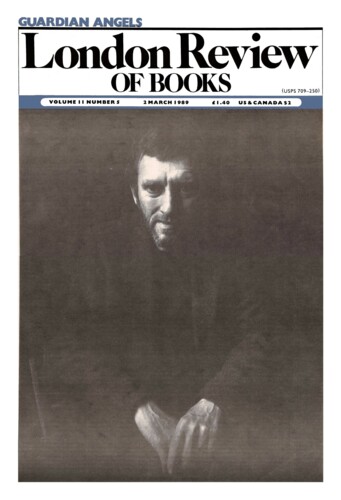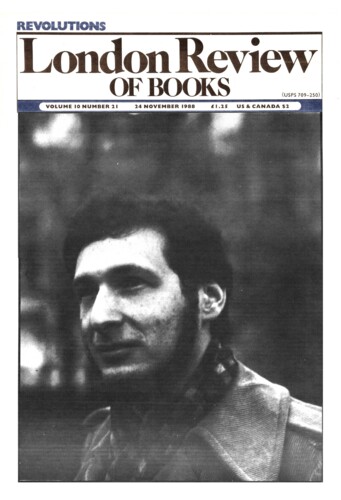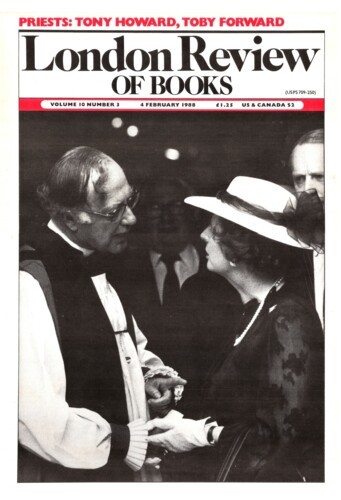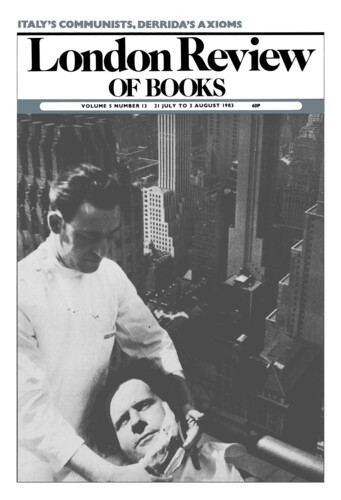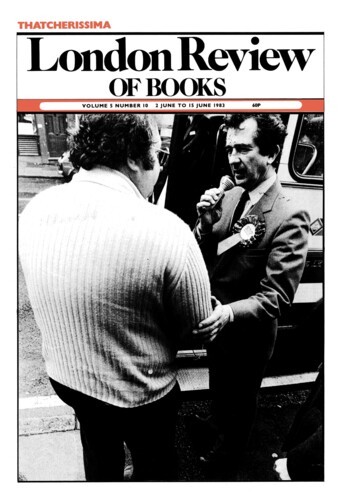Grantham Factor
Martin Pugh, 2 March 1989
In a few short months Margaret Thatcher will chalk up her first decade as prime minister. The celebrations to which this occasion will give rise in the mass media are certain to focus attention once again upon the phenomenon of ‘Thatcherism’ and its supposed origins in the Prime Minister’s own childhood experience of life above the grocer’s shop in Grantham. Historians, biographers, pundits and journalists flutter helplessly around ‘roots’ like the proverbial moths around the candle’s flame. For some statesmen roots provide a comfort and a reassurance – Baldwin’s Worcestershire and Wilson’s Huddersfield come to mind. Some deliberately distance themselves as Lloyd George did from Criccieth, while others consciously adopt a home in the manner of Harold Macmillan with Stockton-on-Tees. Yet others have behaved like President Bush, grabbing home-towns by the bushel in a slightly frenzied search for identity. But no one, surely, has made his or her roots work as hard for them as Mrs Thatcher has with Grantham.’
